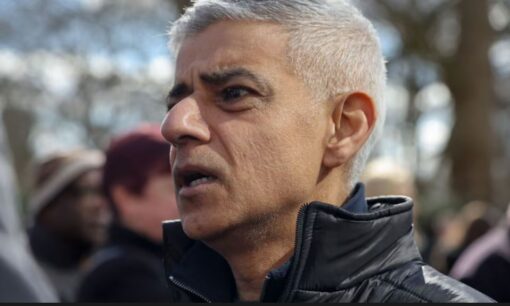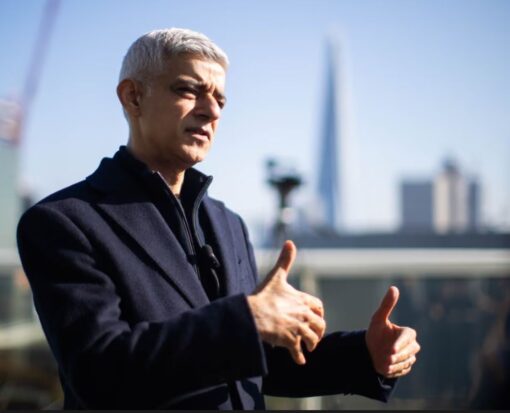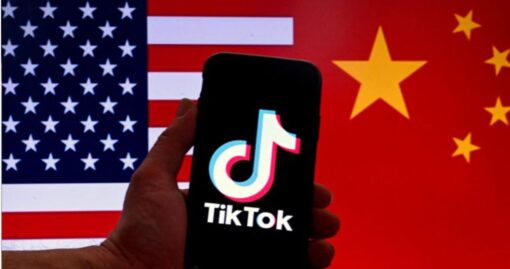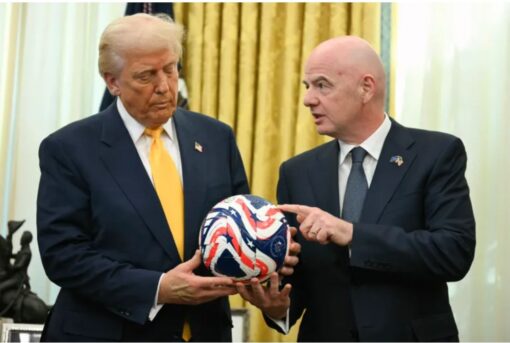LONDON – U.S. President Donald Trump has once again found himself at the center of a political storm after making remarks about sharia law in London, prompting reactions from British politicians, commentators, and international observers.
The comments, part of a long-running pattern of contentious statements about UK politics and its leadership, have reignited debate over cultural, religious, and political dynamics in the British capital.
Trump, who has publicly clashed with London Mayor Sadiq Khan for several years, claimed in recent remarks that he had ensured Khan was not invited to a banquet he attended at Windsor.
However, sources close to the mayor quickly disputed the claim, calling it “false” and emphasizing that the invitation protocols at the royal event were independent of Trump’s preferences.
The ongoing dispute between Trump and Khan has deep roots. McFadden, the UK Work and Pensions Secretary, described it as a “long-running beef”.
He said, “I think the two of them have had a beef for some years.” While Trump has often criticized Khan’s handling of London’s security and social cohesion issues, government officials have stressed that the city remains a valuable international capital.

“London is a great capital city that we have,” the Work and Pensions Secretary added during a morning media briefing. “I think it’s a great asset to the UK. And I’m afraid I differ from the president on that.”
Despite the official government defense of Khan and London’s governance, some political figures in the UK have partially echoed aspects of Trump’s comments.
Nigel Farage, the former UK Independence Party leader and current head of Reform UK, acknowledged that Trump had a point in highlighting sharia law as a topic of concern, though he downplayed the immediate threat.
Farage told newmen: “Never take what he [Trump] says literally, ever on anything. But always take everything he says seriously.” He continued, “So is he right to say that sharia is an issue in London? Yes. Is it an overwhelming issue at this stage? No. Has the mayor of London directly linked himself to it? No.”
The remarks have sparked a broader conversation in the UK media about the presence of sharia councils and Islamic legal frameworks operating alongside British civil law.
While sharia councils do exist, they primarily mediate civil disputes among Muslim communities rather than enforce criminal law. Critics argue that Trump’s framing exaggerates the influence of such councils, while supporters contend that highlighting these matters is part of acknowledging cultural realities.
Political analysts say Trump’s comments, though controversial, are consistent with his pattern of targeting city leaders he perceives as mismanaging security or cultural integration.
Dr. Marianne Lewis, a political commentator specializing in UK-US relations, said, “Trump has always used provocative rhetoric to make a point, often exaggerating local issues to appeal to his base. In London, he sees sharia law as symbolic of broader challenges related to integration and security, though the practical impact is limited.”
The controversy is not confined to rhetoric. London Mayor Khan, who has previously defended the city’s multicultural model, emphasized that sharia law should not be conflated with criminal threats.
A spokesperson for Khan’s office stated, “London is a city built on diversity and rule of law. Sharia councils only serve a limited civil function and operate under British legal standards.”
Meanwhile, government officials have sought to balance the defense of London’s institutions with acknowledging the concerns raised by Trump and other commentators.
The Work and Pensions Secretary noted, “we take seriously the need for all communities to feel safe and respected. At the same time, London thrives as a global city because it protects the rights of all its citizens, irrespective of background or religion.”
The debate has also been fueled by media coverage highlighting the symbolic clash between Trump and Khan. Social media platforms have amplified reactions, with some users supporting Trump’s emphasis on security and cultural issues, while others criticize him for misrepresenting London’s reality.
Farage’s comments add an interesting dimension, as they reflect a broader political strategy of acknowledging certain security concerns without endorsing full-scale alarmism.
“The point is not to incite fear,” Farage explained. “It is to recognize potential challenges in urban governance while avoiding exaggeration. Trump is provocative, yes, but there is a kernel of truth in his assertion that these are topics worth discussing.”
Analysts also note that Trump’s critique of Khan fits into his long-term approach of leveraging foreign political disputes to remain relevant on the global stage. By highlighting contentious issues in major cities, Trump reinforces his image as a leader unafraid to tackle difficult subjects, regardless of diplomatic norms.
“Trump’s approach is consistent,” said Dr. Lewis. “By focusing on sharia law in London, he simultaneously criticizes a high-profile mayor and appeals to international audiences who share his concerns about urban governance and integration.”
The controversy has coincided with broader discussions about multiculturalism, security, and governance in major cities around the world. London, with its diverse population and history of grappling with social cohesion, serves as a focal point for these debates.
Experts caution against oversimplifying complex urban dynamics, arguing that while symbolic statements can highlight real concerns, they should be contextualized within broader legal and societal frameworks.
“Sharia councils are part of civil mediation and do not override British law,” said Professor Alan Whitman, an expert in religious law in the UK. “The issue is largely political rhetoric rather than a pressing legal problem. However, it does illustrate tensions in multicultural cities where traditional and religious norms intersect with secular governance.”
As the debate continues, reactions from international media highlight the enduring fascination with Trump’s remarks. U.S. outlets have reported on the London controversy with an emphasis on Trump’s critique of Khan, while UK media have balanced coverage between political conflict, cultural context, and responses from local officials.
In parliament, opposition members have used the controversy to question the government’s engagement with urban security and multicultural policy.

Meanwhile, proponents of stricter integration measures argue that Trump’s comments raise valid points about the challenges of maintaining law and order in complex urban environments.
The Trump-Khan dispute also underscores the broader challenges of transatlantic political commentary, particularly when former U.S. leaders weigh in on domestic UK issues. While Trump has no official authority in the UK, his statements carry symbolic weight and influence media narratives on both sides of the Atlantic.
The London sharia law debate illustrates how political rhetoric, international personalities, and domestic governance intersect. Trump’s comments, while provocative, have sparked serious discussion among UK politicians, commentators, and citizens about cultural integration, urban security, and the responsibilities of city leadership.
As Farage aptly summarized, “Never take what he says literally, but always take it seriously. That is the lesson for London and for the world.”
With ongoing attention from global media, social commentators, and policymakers, the Trump-Khan dispute is likely to remain a topic of discussion, particularly as London navigates the complexities of multicultural governance in the 21st century.


